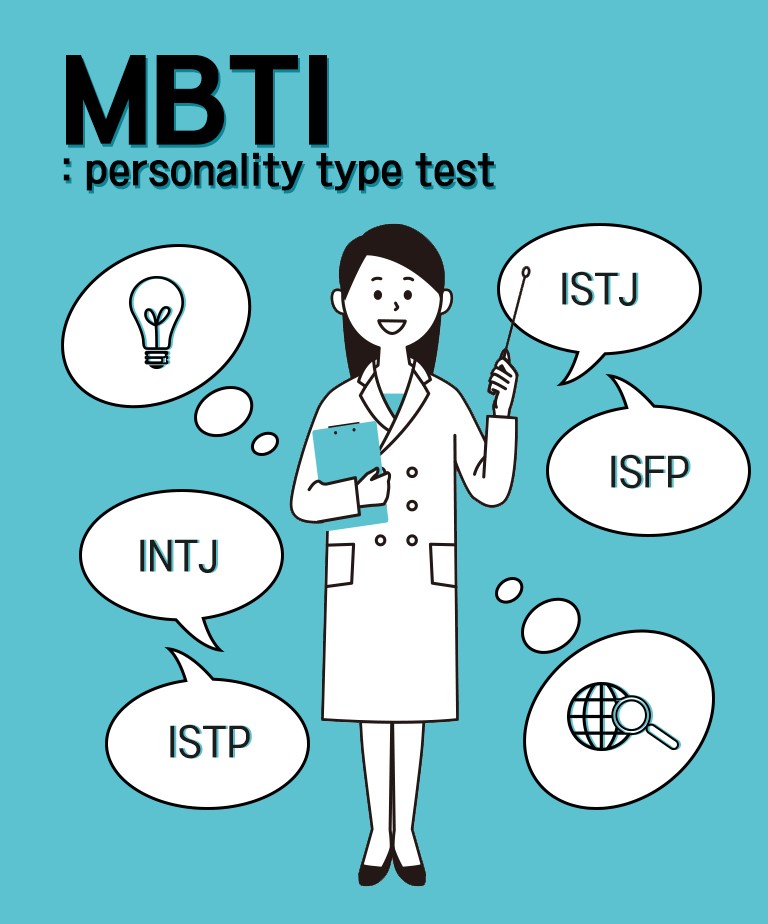 |
| ▲ Is there any scientific basis for psychological testing like MBTI? |
Many people have taken personality tests or psychological tests like the MBTI (Myers-Briggs Type Indicator). People react differently to their results. Maybe they don’t believe the results of the tests, or maybe they completely agree with them. So, what about the MBTI, the current trending personality test? Let’s look at scientific research conducted by psychologists and students’ opinions of the MBTI.
MBTI was created based on Carl Jung's psychological theories and to apply his theories in real life. Each individual can fall into one of 16 personality types, combining four pairs of preferences according to individual temperament and inclination. The (S) Sensing and (N) iNtuition functions are used to gather information. They describe how new information is perceived and interpreted. (Sensing: to believe information that can be perceived from the external world through the five senses; iNtuition: to believe information that can be perceived from internal thoughts, wider contexts, and patterns). The (T) Thinking and (F) Feeling functions are used to process information and make decisions. (Thinking: to make decisions based on logic; Feeling: to make decisions based on emotions). The last four functions are the pairing of (E) Extraversion and (I) Introversion (Extraversion: to get energy from action, interpersonal relationships, and socializing; Introversion: to expend energy through action, need quiet time away from activities to regain energy), and the pairing of (J) Judging and (P) Perceiving (Judging: to organize, make, and follow plans; Perceiving: to be flexible, improvise, and not strictly follow a schedule).
The MBTI, which is based on these eight traits, is a test that’s used in everyday life, personal counseling, education, and research. However, there is also criticism that it tries to categorize people in strict categories without any middle ground, oversimplifying all personalities into dichotomies of eight distinct characteristics. The Campus Journal interviewed Kim Eun-seo and Park Jae-hwi, law students at Changwon National University, to learn how they reacted to their MBTI test results, and what their thoughts on the test results were.
Q: Have you ever taken a personality test like the MBTI psychological test?
Kim: Because of COVID-19, I've been spending a lot of time at home. So, I've been taking a lot of tests on the internet including the MBTI.
Park: Yes, I enjoy taking personality tests a lot. Especially psychological tests like the MBTI. I enjoy taking them because I feel like I can get to know myself better through the tests.
Q: Did you feel that the results of the MBTI test accurately reflected your personality?
Kim: According to my MBTI results, my personality type is ISFP. I remember the results also saying that I'm a warm-hearted person like 'an overcoat with a wool lining'. When I shared my results with people, they told me that it matches my personality. I think the characteristics of the ISFP personality are very similar to my personality.
Park: I got the INTP personality type. What shocked me the most from the test results was that it said that I didn't have the ability to empathize. There were some results that I agreed with, but there were also many things that weren't accurate at all. I agree with some of the personality characteristics described in my test results, but personal biases could make me feel like the results are accurate even if they’re not.
Q: Do you think these tests have scientific evidence to back them up?
Kim: I think there is a scientific basis for the MBTI because it’s used to help recommend student careers and determine personality characteristics related to student life. I trust these kinds of tests in moderation but we need to filter out the parts that feel like they don't fit.
Park: I'm not sure that there is a scientific basis for this test. Personalities can change depending on circumstances, and I think most people tend to answer psychological tests with how they are feeling at the time, and are especially influenced by recent events. That's why I don’t believe in personality tests because I feel like the results of the tests are determined by the recent events in the test-taker’s life.
People still have questionable confidence in psychological tests that have not been corroborated through interviews with a professional. However, the MBTI is an international, widely used, published psychological testing tool. It is a standardized form of testing with copyright and trademark registration. Since the test is based on Carl Jung's psychological type theory, its scientific credibility cannot be completely ruled out. It can be recognized as a useful tool that helps people to understand the differences in psychological preferences between themselves and others, and to effectively understand and adapt to the various aspects faced in everyday life.
By Shin Ji-won, cub-reporter jennna09@naver.com
<저작권자 © The Campus Journal, 무단 전재 및 재배포 금지>

 Shrinkflation, Consumer Deception
Shrinkflation, Consumer Deception




